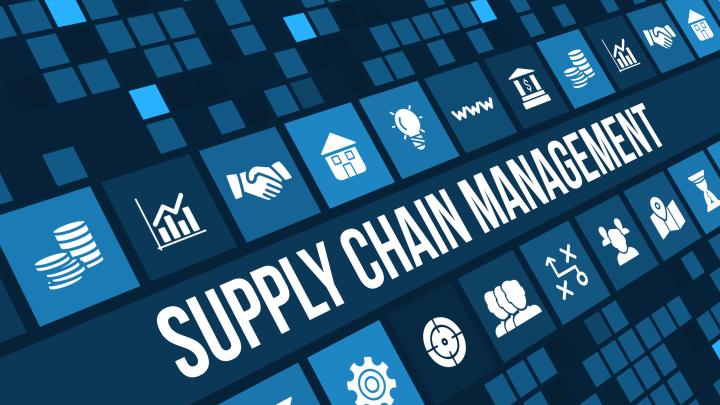Supply Chain Management (SCM) encompasses the comprehensive process of planning, executing, and controlling the movement of goods, services, and information from the point of origin to the final consumer. This holistic approach aims to optimize every phase of the supply chain, ensuring efficiency and effectiveness. If you’re curious about the intricacies of SCM and how it could benefit or challenge your business, read on as we explore both its advantages and disadvantages.
Advantages of Supply Chain Management
Significant Cost Reduction
One of the most compelling benefits of SCM is its ability to significantly reduce costs. By refining various business processes—such as manufacturing, packing, storing, and shipping—SCM helps businesses cut down on unnecessary expenses. This cost-efficiency is particularly valuable in competitive markets where every dollar saved can enhance a company’s financial performance.
Enhanced Customer Satisfaction
Effective SCM contributes to superior customer service through timely deliveries and accurate order fulfillment. By streamlining operations, businesses can ensure that products reach customers faster and in better condition, which enhances overall customer satisfaction. In competitive markets, especially where customer expectations are high, this can translate into increased loyalty and a stronger market position.
Improved Operational Efficiency
SCM optimizes business operations by smoothing out inefficiencies and redundancies. This improved efficiency not only accelerates production and distribution processes but also minimizes the costs associated with overstocking or stockouts. As a result, businesses can operate more smoothly and react more swiftly to market changes.
Stronger Supplier Relationships
A well-managed supply chain fosters better relationships with suppliers. Through consistent and transparent interactions, businesses can negotiate better terms, ensure timely deliveries, and secure favorable pricing. Building strong supplier partnerships can lead to more reliable and cost-effective procurement processes.
Effective Risk Management
SCM is instrumental in identifying and mitigating potential risks before they escalate into significant issues. By proactively addressing risks—such as supply disruptions or logistical challenges—businesses can maintain continuity and stability. This proactive approach is crucial in managing the uncertainties of global supply chains.
Enhanced Adaptability and Responsiveness
A well-structured supply chain allows businesses to adapt quickly to market fluctuations and customer demands. By having a flexible and responsive supply chain, companies can better handle unexpected changes, such as shifts in consumer preferences or disruptions in supply.
Improved Quality Control
SCM also plays a vital role in ensuring high standards of quality. By adhering to stringent global quality standards and incorporating best practices, businesses can enhance the quality of their products and services. This focus on quality is essential for maintaining a competitive edge and meeting international standards.
Disadvantages of Supply Chain Management
High Implementation Costs
Implementing an effective SCM system can be costly. The initial investment in technology, training, and process improvements can be substantial. For smaller businesses or those with limited resources, these costs can be a significant barrier to adopting comprehensive SCM strategies.
Complexity in Coordination
Supply Chain Management involves coordinating various components across different departments and stages. This complexity can be challenging to manage, particularly in large organizations with numerous moving parts. Aligning all elements of the supply chain requires meticulous planning and execution.
Dependency on Suppliers
An effective SCM system relies heavily on the performance of suppliers. Any delays or issues on the supplier’s end can directly impact the entire supply chain. In markets where supply chain disruptions are common, this dependency can introduce additional risks and uncertainties.
Vulnerability to External Disruptions
Supply chains are susceptible to external disruptions, such as natural disasters, geopolitical issues, or logistical challenges. These disruptions can have a ripple effect, impacting the entire supply chain and potentially causing delays or additional costs.
Forecasting Challenges
Accurate demand forecasting is a critical aspect of SCM. However, predicting customer demand and managing inventory levels can be challenging. Misjudgments in forecasting can lead to overstocking or stockouts, both of which can affect business performance and customer satisfaction.
Logistical Difficulties
Managing logistics across a global supply chain can be particularly challenging, especially in regions with infrastructure constraints or complex regulatory environments. Efficiently transporting goods from one location to another requires effective logistics management and may involve navigating various logistical hurdles.
Data Management Issues
SCM involves handling and analyzing large volumes of data. For businesses without advanced data management tools, this can be overwhelming and difficult to manage. Effective data handling is crucial for making informed decisions and optimizing supply chain performance.
Need for Skilled Professionals
Successful SCM requires skilled professionals who are well-versed in supply chain processes and technologies. Finding and retaining such talent can be difficult, particularly in regions where there is a shortage of qualified professionals.
Coordination Challenges
Ensuring smooth coordination among different departments and teams within a company can be a significant challenge. Effective SCM requires seamless integration and collaboration across various functions, which can be difficult to achieve.
Conclusion
Supply Chain Management offers numerous benefits, including cost reduction, enhanced customer satisfaction, improved efficiency, and stronger supplier relationships. However, it also presents challenges such as high implementation costs, complexity in coordination, and vulnerability to external disruptions. By understanding both the advantages and disadvantages of SCM, businesses can make informed decisions about how to effectively manage their supply chains and achieve their operational goals.

